
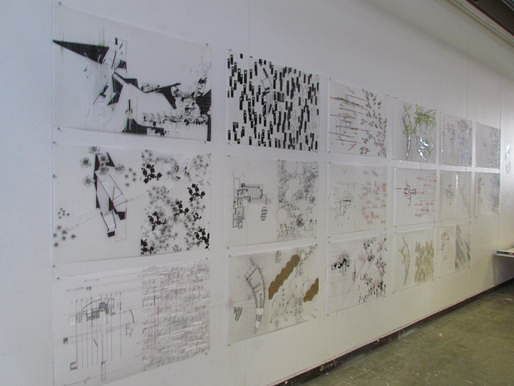
In my last semester at Taubman College I had the privilege of taking an amazing drawing class with one of the school’s foremost experts on drawing and representation, Perry Kulper. His work has been published extensively, in addition to several posts here on archinect.
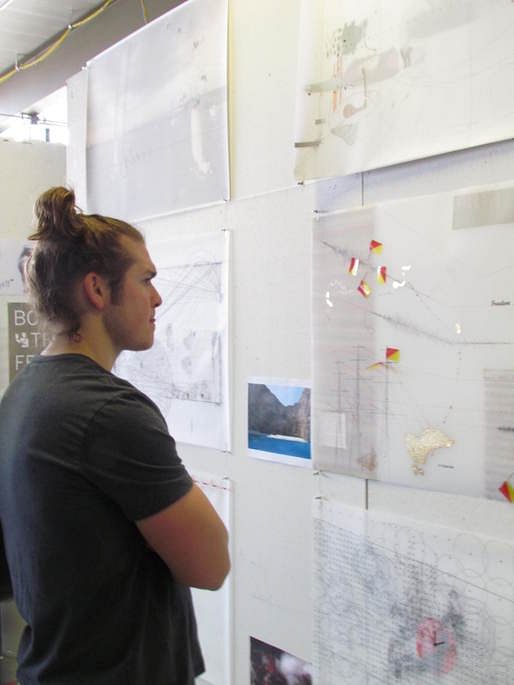
For the purposes of the drawing seminar, the work was split up into (4) drawing assignments which explored various methods of using drawing as a generative operation, instead of merely a representational one.
At the end of the semester we held an exhibition to showcase the most interesting work. The majority of the work showcased was from our last two assignments, “generative removal” and “real slow.” Each of the drawing projects involved a large commitment of both time and energy from myself and my fellow classmates. A commitment that, at least in my opinion, was paid back 10x by the final work.
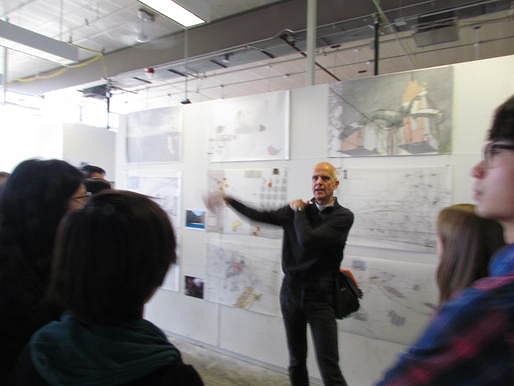
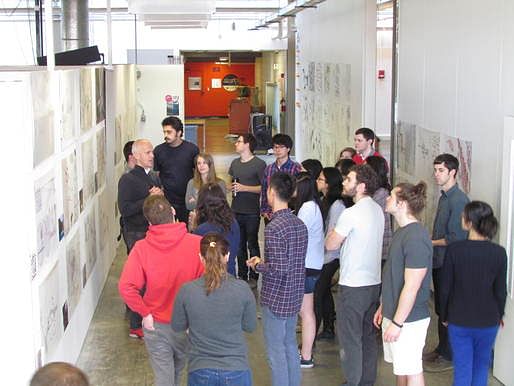
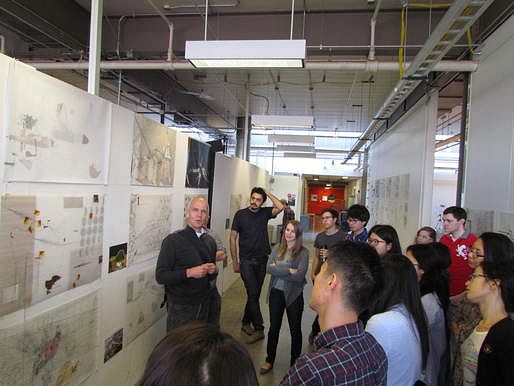
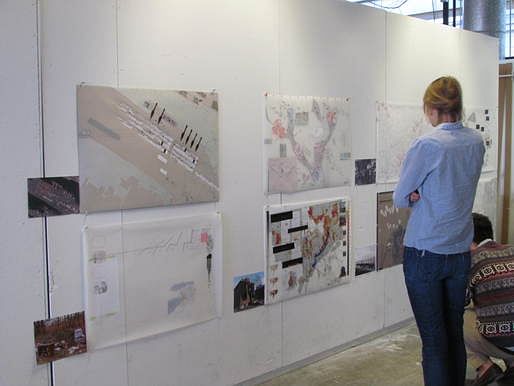
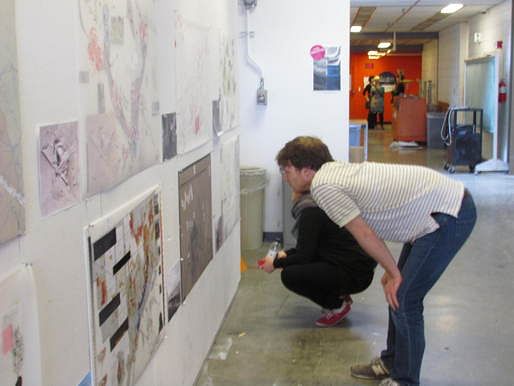
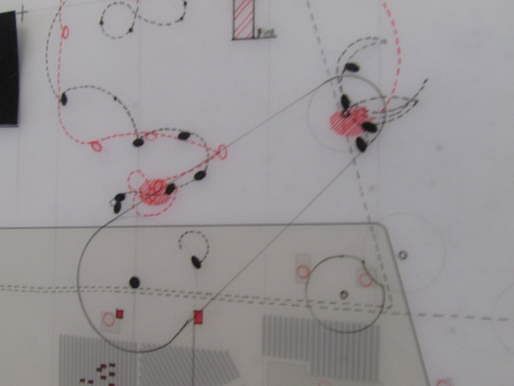
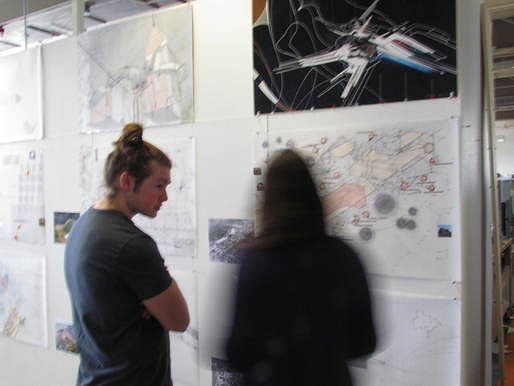
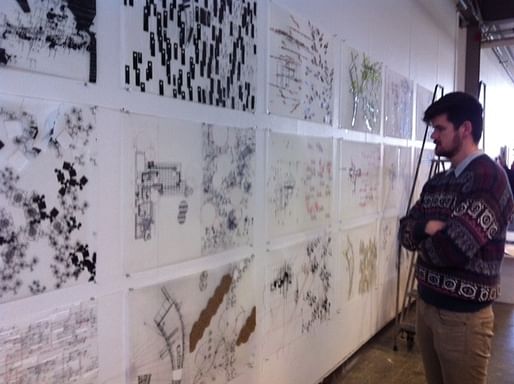
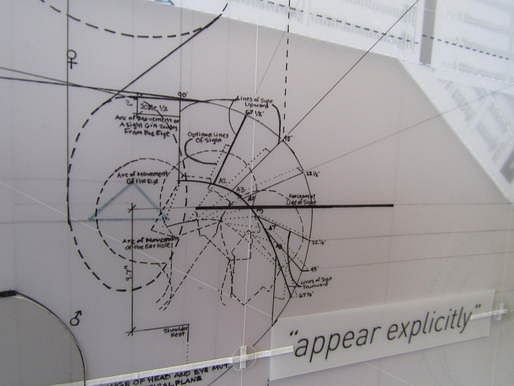
Generative Removal
This work focuses on erasure as a means of generating an architectural proposition. Instead of contributing to architecture through additive means, the erasure work attempts to produce architecture through subtractive methods. Perry introduced us to the “5 points of erasure as deconstructing towards a new architecture” which he likens to Le Corbusier’s “5 points of architecture.”
The work started by creating a diptych which, on one side, had the floor plan of a famous villa or house. The other side of the diptych was to be populated with a series of “marks” whose character and placement was determined by a series of rules given to us by Perry. Once the diptych was populated with marks, the work of erasure could begin. Again, a very specific set of rules was used to govern the removal and/or remembering of the marks. The two sides of the diptych were governed by the same rules and meant to be worked as a single drawing.
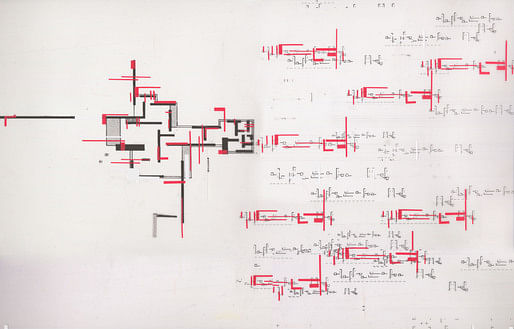 Catharine Pyenson
Catharine Pyenson
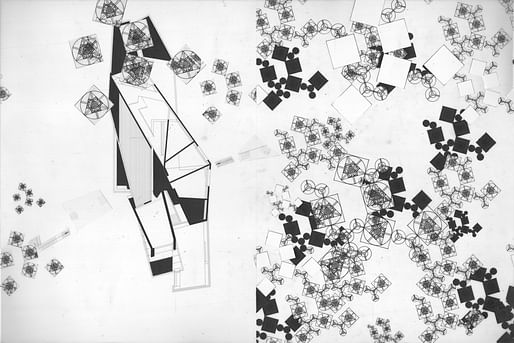 Shaoxuan Dong
Shaoxuan Dong
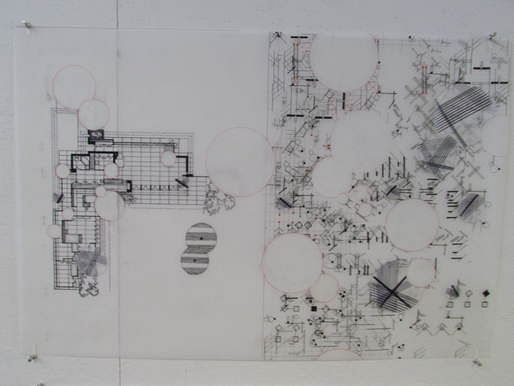 Harry (Me)
Harry (Me)
Real Slow
This work tackles what Perry refers to as Relational Thinking. In the work we were asked to select an image and then redraw the image by revealing the relationships and hidden connections behind the original image. We were not recreating the same image, but utilize the drawing methods learn through Perry's in class lectures to reveal what lies under the surface of the image.
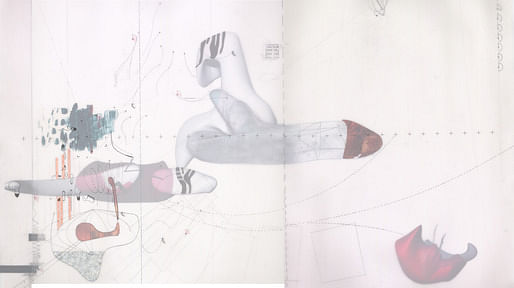 Xiang Liu
Xiang Liu
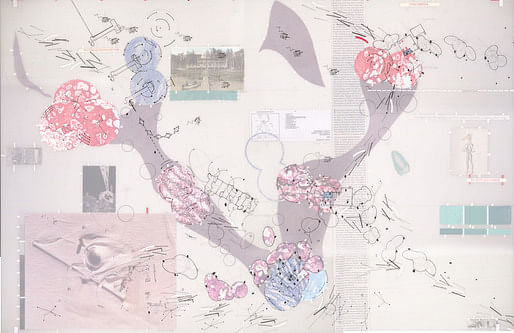 Catharine Pyenson
Catharine Pyenson
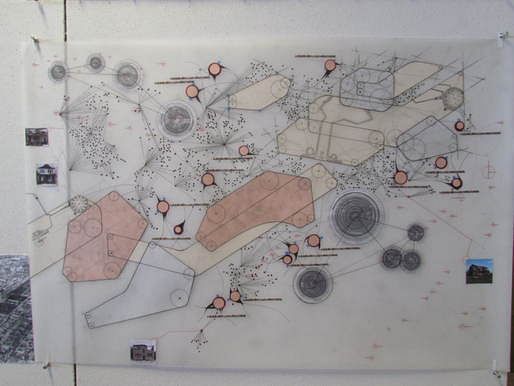 Harry (Me)
Harry (Me)
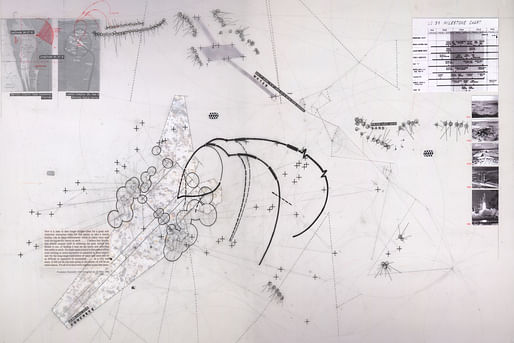 Jeeeun Ham
Jeeeun Ham
I am a graduate student and an entrepreneur at the University of Michigan Taubman College where my studies are focused on leveraging design ideas across multiple scales and platforms. Meeting at the intersection between design, tectonics and fabrication, I am continually exploring how a design idea can navigate complex material and production systems and evolve into fully realized architectural artifacts.
Are you sure you want to block this user and hide all related comments throughout the site?
1 Comment
Such beautiful work! And the commitment to creating something slowly and by hand is still a resonant practice. Great luck to have taken this course!
Archinect
This is your first comment on Archinect. Your comment will be visible once approved.